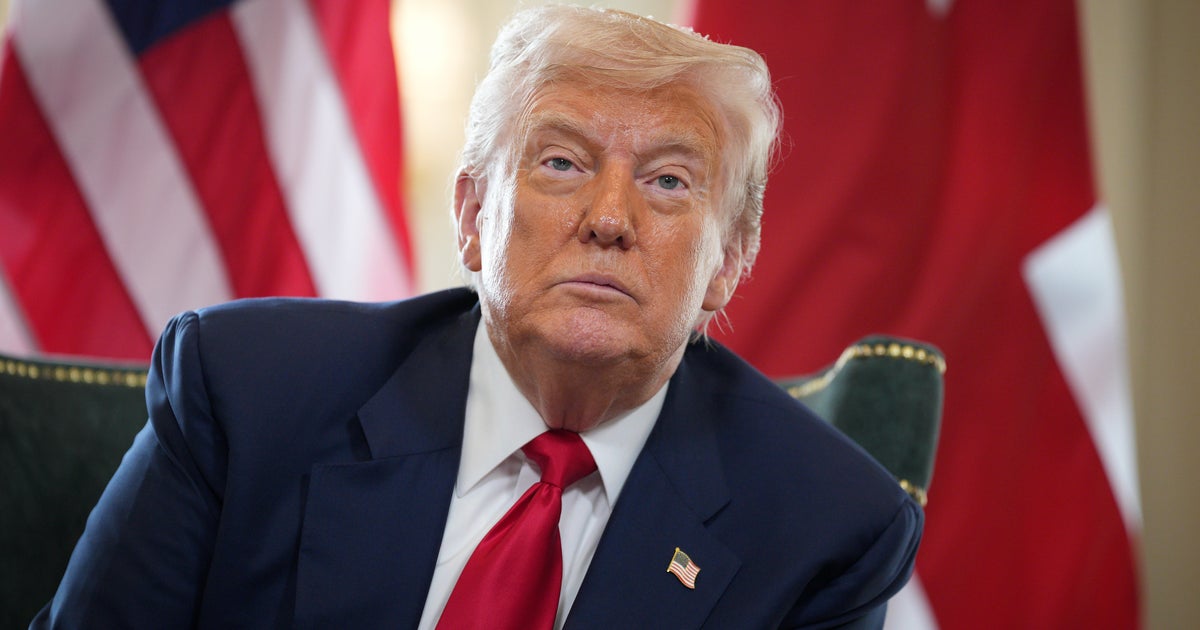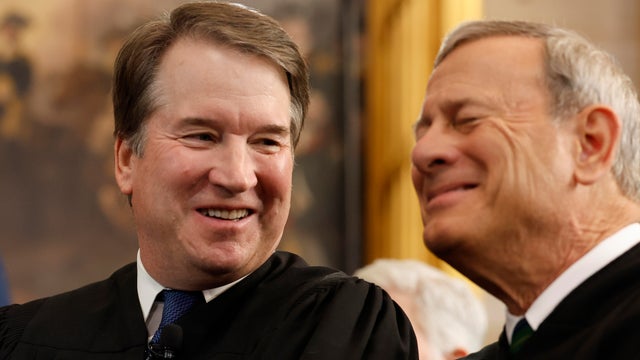

No response returned

Washington — A federal appeals court on Thursday sharply probed to impose sweeping tariffs on nearly every U.S. trading partner, as higher duties are set to snap into place Friday for countries that have not yet reached trade deals with the administration.
The 11 judges on the U.S. Court of Appeals for the Federal Circuit heard arguments in the Trump administration's appeal of a ruling from a trade-focused lower court that found the to hit foreign nations with 10% tariffs under the International Emergency Economic Powers Act, or IEEPA.
While a three-judge panel on the U.S. Court of International Trade blocked the sweeping duties that the president assessed on most countries, the Federal Circuit temporarily while it considers the dispute.
The legal fights before the appeals court were brought by a group of 12 states and five small businesses, and their cases are a major test of the centerpiece of Mr. Trump's economic agenda. The Federal Circuit's decision is likely to be appealed to the Supreme Court. A ruling in favor of Mr. Trump from the conservative court is .
As arguments got underway, several judges on the appeals court peppered Brett Shumate, a Justice Department lawyer, about whether IEEPA authorizes the president to impose tariffs.
One judge immediately noted that the law has never before been used to assess the levies on trading partners.
Many other laws regulating trade include the word "tariff," the judge said, "but here, IEEPA doesn't even say tariffs, doesn't even mention them."
Pointing to those trade statutes, which impose constraints on the duties that a president can assess, one of the judges questioned why a president would rely on those laws when IEEPA provides broader power under the Justice Department's interpretation.
"Your argument dislocates that entire U.S. trade-relief framework," he said.
Later, looking at the harmonized tariff schedule, which sets tariff rates and categories for merchandise imported into the U.S., members of the court criticized the scope of Mr. Trump's levies, which cover nearly every country.
"It's a wholesale revision of the scheme that Congress enacted," a judge said, adding, "it's really kind of asking for an extraordinary change" to the legislature's approach to the tariff schedule.
Other members of the Federal Circuit seemed concerned with the breadth of authority the president was claiming in relying on IEEPA to impose broad tariffs on trading partners.
"It seems to me you're asking for unbounded authority," one judge told Shumate.
The president has relied on tariffs as a way to force trading partners to negotiate deals that he said are more favorable to the U.S. and reduce trade imbalances. Since Mr. Trump announced his sprawling tariff regime on April 2, which he dubbed "Liberation Day," the administration has said it reached trade deals with , the and the . Many economists argue tariffs could lead to higher consumer prices and slower economic growth.
The tariffs announced in early April set a 10% baseline tariff on nearly every country, and reciprocal tariffs above the 10% rate on . While the reciprocal levies were initially supposed to take effect April 9, Mr. Trump and lowered the rate for countries subject to the higher tariffs to 10%. Some of those higher Friday for countries the administration has not reached trade agreements with.
Mr. Trump has since said that he would for nations that don't enter into trade deals with the U.S. to "somewhere in the 15% to 20% range."
Only the so-called Liberation Day tariffs, and higher levies on Chinese, Canadian and Mexican imports that the president said were to combat the trafficking of fentanyl into the U.S., are at issue in the cases before the Federal Circuit.
No president before Mr. Trump had invoked IEEPA to impose tariffs, and the Constitution vests the power to assess levies in Congress. IEEPA does not include any references to tariffs or duties, and it has typically been used by presidents to impose economic sanctions on foreign nations.
Under IEEPA, the president can exercise the law's authority in instances involving "an unusual and extraordinary threat" to national security or the economy for which "a national emergency has been declared."
In rolling out his tariffs, Mr. Trump claimed that trade deficits and the flow of illicit drugs across U.S. borders constituted national emergencies and were threats to national security and the economy. Shumate argued before the Federal Circuit that courts should not second-guess the president's determination that trade deficits are an emergency, and some of the judges seemed inclined to agree that the consequences of those imbalances would fit within IEEPA's framework.
He also said that the emergency powers law authorizes a president to "regulate ... any ... importation," and that covers the imposition of tariffs.
But the challengers to his tariffs argue that trade deficits have persisted for 50 years, and they warned that if allowed, the president would have limitless power to set tariffs of any amount against any product.
"That is a breathtaking claim to power that no president has asserted in 200 years, and the consequences are staggering," Neal Katyal, who argued on behalf of the small businesses, told the Federal Circuit.
The plaintiffs also argued that a different law, a provision of the Trade Act of 1974, governs the president's imposition of tariffs in response to trade deficits, but caps the duties at 15% and limits their duration to five months.
In addition to claiming that IEEPA does not authorize Mr. Trump's tariffs, lawyers for the small businesses and states argue that they violate the major questions and nondelegation doctrines, that have in recent years been raised by the Supreme Court's conservative majority.
Under the major questions doctrine, an agency that seeks to decide an issue of major political or economic significance must have clear authorization from Congress. And under the nondelegation doctrine, Congress cannot delegate its legislative power to executive branch agencies unless it sets out an "intelligible" and judicially enforceable principle to guide an agency.
"Congress alone has constitutional authority to impose tariffs," lawyers for the states wrote in a . "But under President Trump's reading of IEEPA, Congress gave him the authority to rewrite the tariff schedules at his whim."
The Trump administration has defended the tariffs and said they were imposed because the president believes they are needed to address "grave threats" to U.S. national security and the economy.
"President Trump has found that America's exploding trade deficit, the implications of that deficit for our economy and national security, and a fentanyl importation crisis that has claimed thousands of American lives constitute national emergencies," Justice Department lawyers wrote in a
They noted that Mr. Trump's plans for tariffs were a key component of his 2024 presidential campaign and said they've been successful at sparking negotiations on trade deals with U.S. partners.
"The CIT's injunction would, if affirmed, disrupt the Executive Branch's ongoing, sensitive diplomatic negotiations with virtually every major trading partner. And it would unilaterally deprive the United States of a powerful tool for combating systemic distortions in the global trading system, thus allowing other nations to continue to hold American exporters hostage to their unreasonable, discriminatory, and sometimes retaliatory trade policies," Justice Department lawyers argued.
It's unclear how quickly the Federal Circuit will rule.




